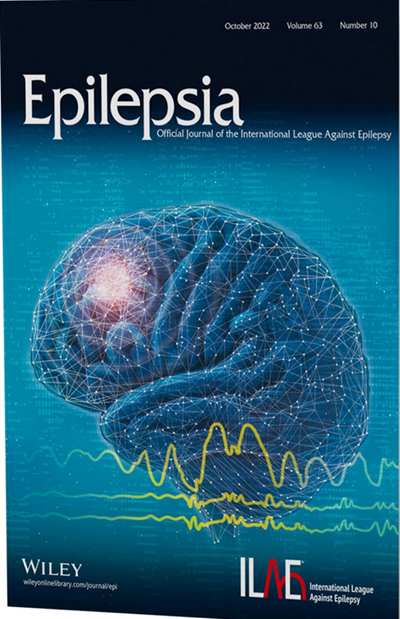Poststroke seizures and epilepsy increase the risk of dementia among stroke survivors: A population‐based study
IF 6.6
1区 医学
Q1 CLINICAL NEUROLOGY
引用次数: 0
Abstract
ObjectiveWith global aging, the occurrence of stroke and associated outcomes like dementia are on the rise. Seizures and epilepsy are common poststroke complications and have a strong connection to subsequent dementia. This study examines the relationship between poststroke seizures (PSS) or poststroke epilepsy (PSE) and dementia using a national health care database.MethodsWe conducted a retrospective study using data from the Taiwan National Health Insurance Research Database from 2009 to 2020. We identified acute stroke patients from 2010 to 2015, excluding those with pre‐existing neurological conditions. Based on age, sex, stroke severity level, and the year of index stroke, patients with PSS or PSE were matched to those without. The main outcome was incident dementia.ResultsThis study included 62 968 patients with an average age of 63 years, with males accounting for 62.9%. Of them, 60.3% had ischemic strokes, and 39.7% had hemorrhagic strokes. After an average follow‐up period of 5.2 years, dementia developed in 15.9% of patients who had PSS or PSE, as opposed to 8.4% of those without these conditions. A time‐dependent Fine and Gray competing risk analysis showed that PSS and PSE were significantly associated with dementia across all stroke types. Subgroup analyses revealed significantly increased risk of dementia across all age groups (<50, 50–64, and ≥65 years), sexes, and various stroke severity levels. The link between PSS or PSE and dementia was particularly pronounced in men, with a less distinct correlation in women.SignificanceThe risk of incident dementia was higher in patients with PSS or PSE. The potential for therapeutic interventions for seizures and epilepsy to reduce poststroke dementia underscores the importance of seizure screening and treatment in stroke survivors.中风后发作和癫痫会增加中风幸存者患痴呆症的风险:一项基于人群的研究
目的随着全球老龄化的加剧,脑卒中的发病率和痴呆等相关后果也在不断上升。癫痫发作和癫痫是脑卒中后常见的并发症,与随后的痴呆症有密切关系。本研究利用国家医疗保健数据库研究了脑卒中后癫痫发作(PSS)或脑卒中后癫痫(PSE)与痴呆之间的关系。我们对 2010 年至 2015 年的急性中风患者进行了识别,排除了已有神经系统疾病的患者。根据年龄、性别、中风严重程度和中风发生年份,将患有 PSS 或 PSE 的患者与未患有 PSS 或 PSE 的患者进行配对。结果这项研究共纳入 62 968 名患者,平均年龄为 63 岁,男性占 62.9%。其中缺血性脑卒中占 60.3%,出血性脑卒中占 39.7%。经过平均 5.2 年的随访,15.9% 患有 PSS 或 PSE 的患者出现痴呆,而未患这些疾病的患者中只有 8.4%出现痴呆。与时间相关的Fine和Gray竞争风险分析表明,在所有中风类型中,PSS和PSE与痴呆症有显著相关性。亚组分析显示,在所有年龄组(50 岁、50-64 岁和≥65 岁)、性别和各种中风严重程度中,痴呆风险都明显增加。PSS 或 PSE 与痴呆之间的联系在男性中尤为明显,而在女性中的相关性则不那么明显。对癫痫发作和癫痫的治疗干预有可能减少卒中后痴呆的发生,这强调了对卒中幸存者进行癫痫发作筛查和治疗的重要性。
本文章由计算机程序翻译,如有差异,请以英文原文为准。
求助全文
约1分钟内获得全文
求助全文
来源期刊

Epilepsia
医学-临床神经学
CiteScore
10.90
自引率
10.70%
发文量
319
审稿时长
2-4 weeks
期刊介绍:
Epilepsia is the leading, authoritative source for innovative clinical and basic science research for all aspects of epilepsy and seizures. In addition, Epilepsia publishes critical reviews, opinion pieces, and guidelines that foster understanding and aim to improve the diagnosis and treatment of people with seizures and epilepsy.
 求助内容:
求助内容: 应助结果提醒方式:
应助结果提醒方式:


